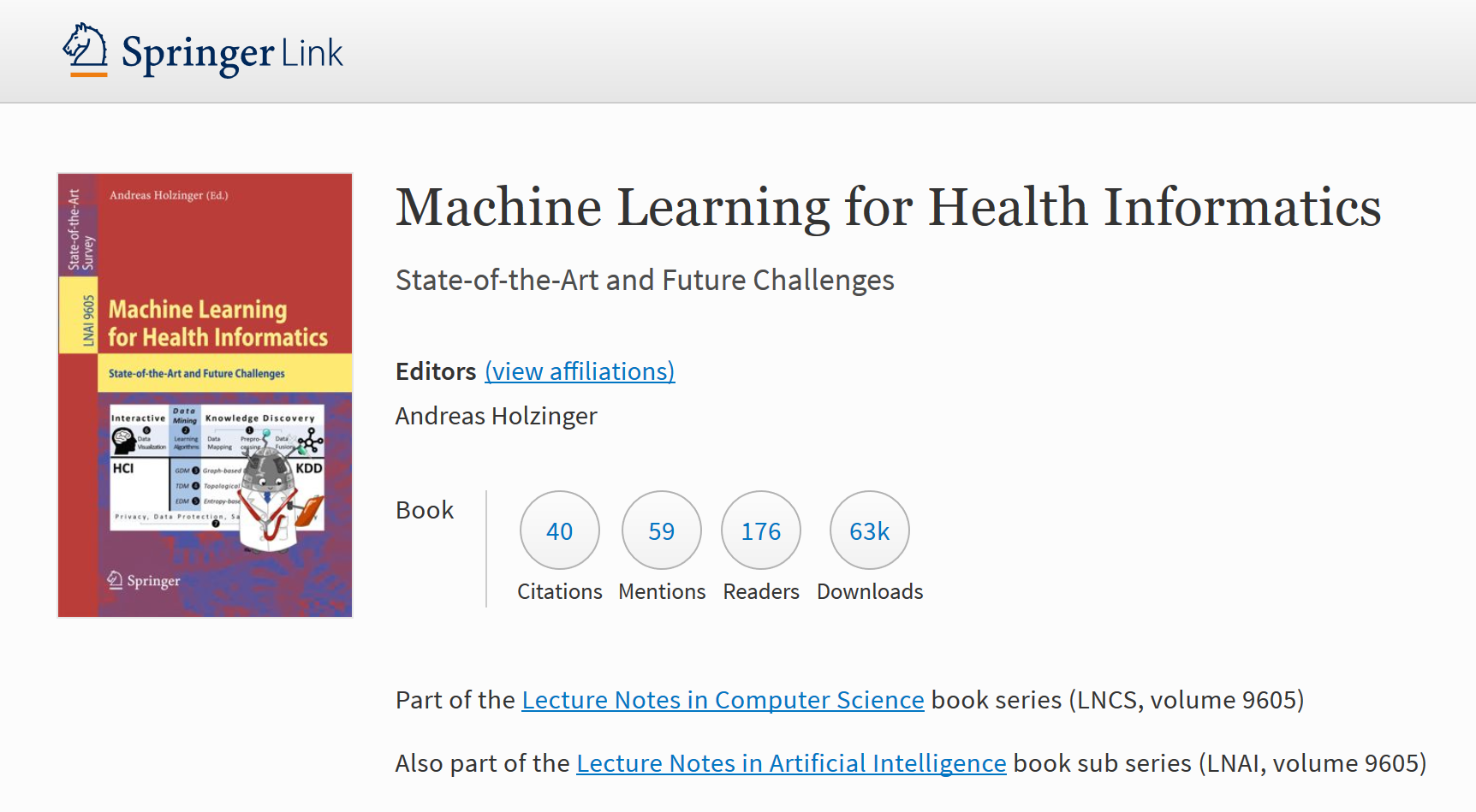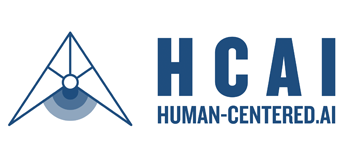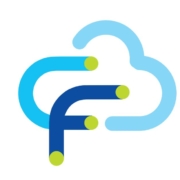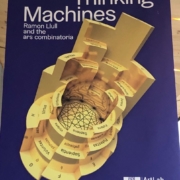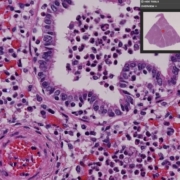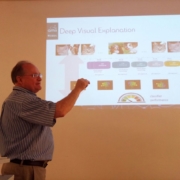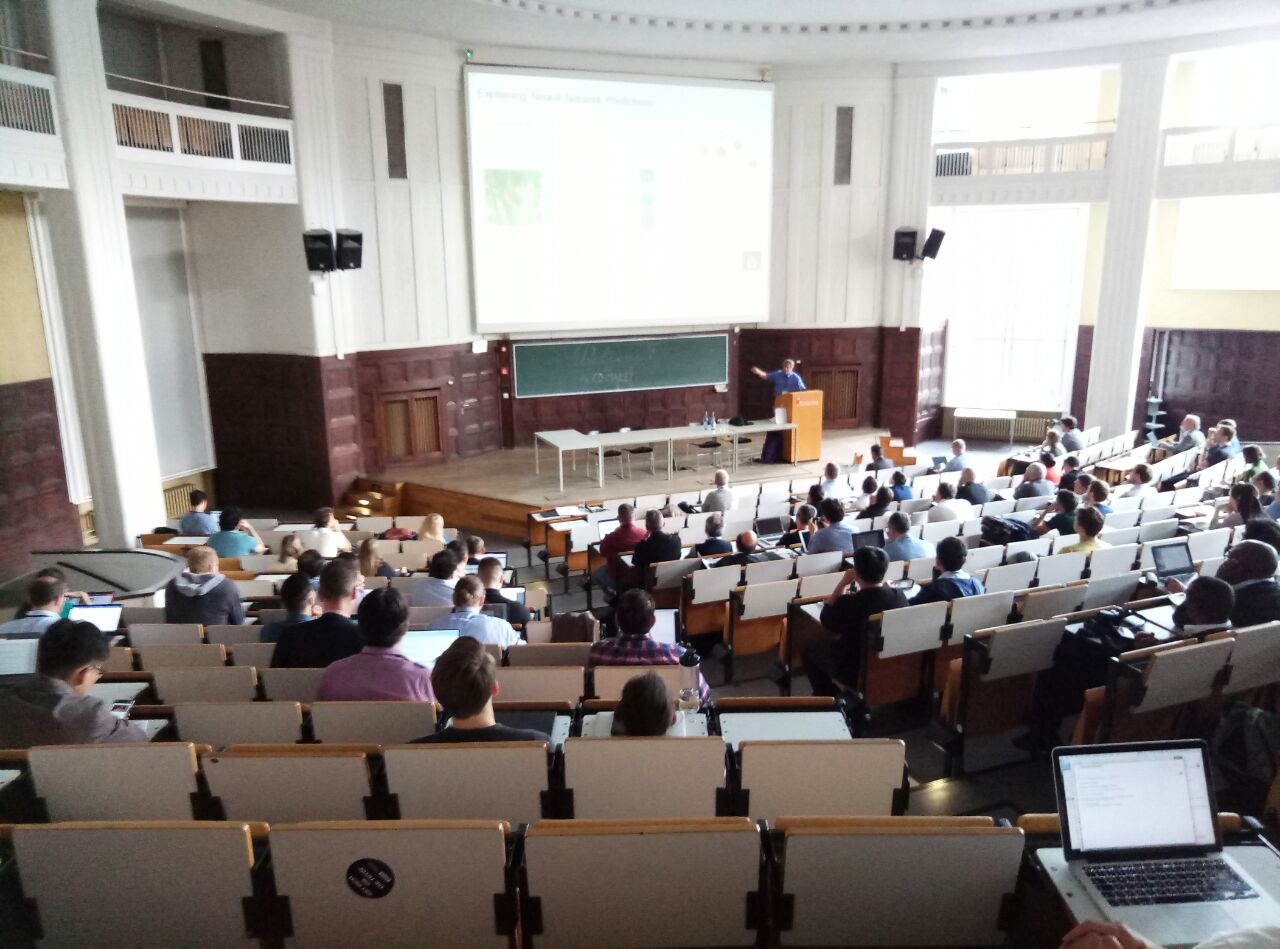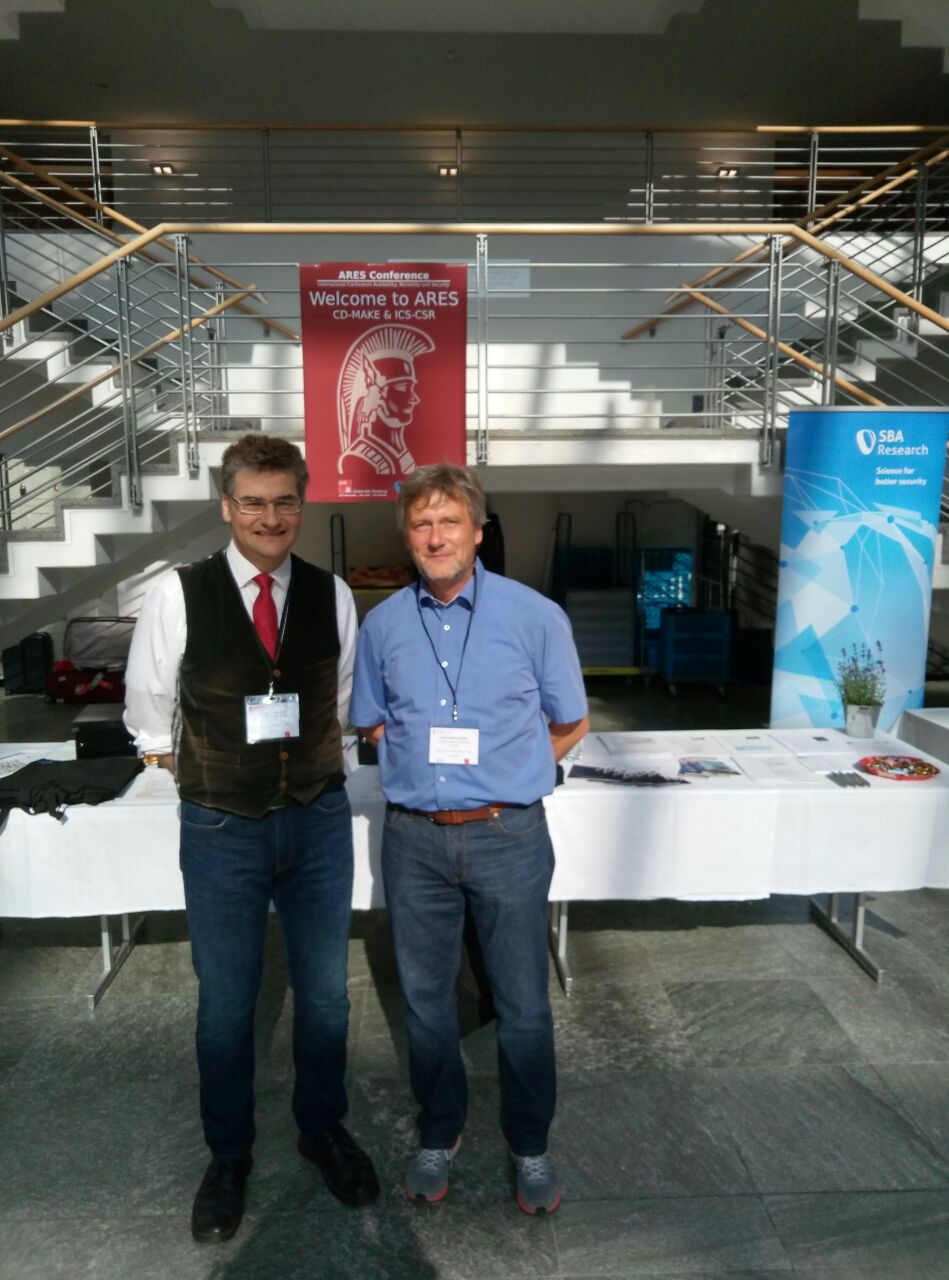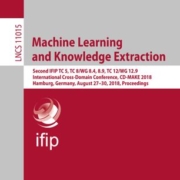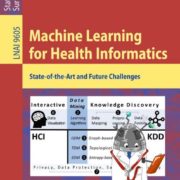Third ITU/WHO Workshop on Artificial Intelligence for Health today at EPFL Lausanne
/in HCI-KDD Events, Lectures/by Andreas HolzingerMiniconf Thursday, 20th December 2018: Raphaël Marée
/in HCI-KDD Events, Lectures/by Andreas HolzingerRaphaël MARÉE from the Montefiori Institute, Unviersity of Liege will visit us in week 51 and give a lecture on
Open and Collaborative Digital Pathology using Cytomine
When: Thursday, 20th December, 2018, at 10:00
Where: BBMRI Conference Room (joint invitation of BBMRI, ADOPT and HCI-KDD)
Address: Neue Stiftingtalstrasse 2/B/6, A-8010 Graz, Austria
Abstract:
In this talk Raphael Maree will present the past, present, and future of Cytomine.
Cytomine [1], [2] is an open-source software, continuously developed since 2010. It is based on modern web and distributed software development methodologies and machine learning, i.e. deep learning. It provides remote and collaborative features so that users can readily and securely share their large-scale imaging data worldwide. It relies on data models that allow to easily organize and semantically annotate imaging datasets in a standardized way (e.g. to build pathology atlases for training courses or ground-truth datasets for machine learning). It efficiently supports digital slides produced by most scanner vendors. It provides mechanisms to proofread and share image quantifications produced by machine/deep learning-based algorithms. Cytomine can be used free of charge and it is distributed under a permissive license. It has been installed at various institutes worldwide and it is used by thousands of users in research and educational settings.
Recent research and developments will be presented such as our new web user interfaces and new modules for multimodal and multispectral data (Proteomics Clin Appl, 2019), object recognition in histology and cytology using deep transfer learning (CVMI 2018), user behavior analytics in educational settings (ECDP 2018), as well as our new reproducible architecture to benchmark bioimage analysis workflows.
Short Bio:
Raphaël Marée received the PhD degree in computer science in 2005 from the University of Liège, Belgium, where he is now working at the Montefiore EE&CS Institute (https://www.montefiore.ulg.ac.be/~maree/). In 2010 he initiated the CYTOMINE research project (https://uliege.cytomine.org/), and since 2017 he is also co-founder of the not-for-profit Cytomine cooperative (https://cytomine.coop). His research interests are in the broad area of machine learning, computer vision techniques, and web-based software development, with specific focus on their applications on big imaging data such as in digital pathology and life science research, while following open science principles.
[1] Raphaël Marée, Loïc Rollus, Benjamin Stévens, Renaud Hoyoux, Gilles Louppe, Rémy Vandaele, Jean-Michel Begon, Philipp Kainz, Pierre Geurts & Louis Wehenkel 2016. Collaborative analysis of multi-gigapixel imaging data using Cytomine. Bioinformatics, 32, (9), 1395-1401, doi:10.1093/bioinformatics/btw013.
Google Scholar Profile of Raphael Maree:
https://scholar.google.com/citations?user=qG66mF8AAAAJ&hl=en
Homepage of Raphael Maree:
https://www.montefiore.ulg.ac.be/~maree/
Project Feature Cloud – Pre-Project Meeting and Workshop successful
/in HCI-KDD Events, Projects, Science News/by Andreas HolzingerFrom October, 21-22, 2018, the project partners of the EU RIA 826078 FeatureCloud project (EUR 4,646,000,00) met at the Technische Universität München, Campus Weihenstephan. Starting from January, 1, 2019 the project partners will work jointly for 60 months on awesome topics around federated machine learning and explainability. The project’s ground-breaking novel cloud-AI infrastructure will only exchange learned representations (the feature parameters theta θ, hence the name “feature cloud”) which are anonymous by default. This approach is privacy by design or to be more precise: privacy by architecture. The highly interdisciplinary consortium, ranging from AI and machine learning experts to medical professionals covers all aspects of the value chain: assessment of cyber risks, legal considerations and international policies, development of state-of-the-art federated machine learning technology coupled to blockchaining and encompasing social issues and AI-ethics.
Explainable AI Session Keynote: Randy GOEBEL
/in Conferences, HCI-KDD Events/by Andreas HolzingerWe just had our keynote by Randy GOEBEL from the Alberta Machine Intelligence Institute (Amii), working on enhnancing understanding and innovation in artificial intelligence:
https://cd-make.net/keynote-speaker-randy-goebel
You can see his slides with friendly permission of Randy here (pdf, 2,680 kB):
https://human-centered.ai/wordpress/wp-content/uploads/2018/08/Goebel.XAI_.CD-MAKE.Aug30.2018.pdf
Here you can read a preprint of our joint paper of our explainable ai session (pdf, 835 kB):
GOEBEL et al (2018) Explainable-AI-the-new-42
Randy Goebel, Ajay Chander, Katharina Holzinger, Freddy Lecue, Zeynep Akata, Simone Stumpf, Peter Kieseberg & Andreas Holzinger. Explainable AI: the new 42? Springer Lecture Notes in Computer Science LNCS 11015, 2018 Cham. Springer, 295-303, doi:10.1007/978-3-319-99740-7_21.
Here is the link to our session homepage:
https://cd-make.net/special-sessions/make-explainable-ai/
amii is part of the Pan-Canadian AI Strategy, and conducts leading-edge research to push the bounds of academic knowledge, and forging business collaborations both locally and internationally to create innovative, adaptive solutions to the toughest problems facing Alberta and the world in Artificial Intelligence/Machine Learning.
Here some snapshots:
R.G. (Randy) Goebel is Professor of Computing Science at the University of Alberta, in Edmonton, Alberta, Canada, and concurrently holds the positions of Associate Vice President Research, and Associate Vice President Academic. He is also co-founder and principle investigator in the Alberta Innovates Centre for Machine Learning. He holds B.Sc., M.Sc. and Ph.D. degrees in computer science from the University of Regina, Alberta, and British Columbia, and has held faculty appointments at the University of Waterloo, University of Tokyo, Multimedia University (Malaysia), Hokkaido University, and has worked at a variety of research institutes around the world, including DFKI (Germany), NICTA (Australia), and NII (Tokyo), was most recently Chief Scientist at Alberta Innovates Technology Futures. His research interests include applications of machine learning to systems biology, visualization, and web mining, as well as work on natural language processing, web semantics, and belief revision. He has experience working on industrial research projects in scheduling, optimization, and natural language technology applications.
Here is Randy’s homepage at the University of Alberta:
https://www.ualberta.ca/science/about-us/contact-us/faculty-directory/randy-goebel
The University of Alberta at Edmonton hosts approximately 39k students from all around the world and is among the five top universities in Canada and togehter with Toronto and Montreal THE center in Artificial Intelligence and Machine Learning.
CD-MAKE Keynote by Klaus-Robert MÜLLER
/in Conferences, HCI-KDD Events, Lectures/by Andreas HolzingerProf. Dr. Klaus-Robert MÜLLER from the TU Berlin was our keynote speaker on Tuesday, August, 28th, 2018 during our CD-MAKE conference at the University of Hamburg, see:
Klaus-Robert emphasized in his talk the “right of explanation” by the new European Union General Data Protection Regulations, but also shows some diffulties, challenges and future research directions in the area what is now called explainable AI. Here you find his presentation slides with friendly permission from Klaus-Robert MÜLLER:
https://human-centered.ai/wordpress/wp-content/uploads/2018/08/cd-make-N-muller18.pdf
(3,52 MB)
Here some snapshots from the keynote:
Thanks to Klaus-Robert for his presentation!
“Machine Learning and Knowledge Extraction” 2nd CD-MAKE Volume just appeared
/in Conferences, HCI-KDD Events, Recent Publications/by Andreas HolzingerThe second Volume of the Springer LNCS Proceedings of the IFIP TC 5, TC 8/WG 8.4, 8.9, TC 12/WG 12.9 International Cross-Domain Conference, CD-MAKE Machine Learning & Knowledge Extraction just appeared, see:
https://link.springer.com/book/10.1007/978-3-319-99740-7
>> Here the preprints of our papers:
[1] Andreas Holzinger, Peter Kieseberg, Edgar Weippl & A Min Tjoa 2018. Current Advances, Trends and Challenges of Machine Learning and Knowledge Extraction: From Machine Learning to Explainable AI. Springer Lecture Notes in Computer Science LNCS 11015. Cham: Springer, pp. 1-8, doi:10.1007/978-3-319-99740-7_1.
HolzingerEtAl2018_from-machine-learning-to-explainable-AI-pre (pdf, 198 kB)
[2] Randy Goebel, Ajay Chander, Katharina Holzinger, Freddy Lecue, Zeynep Akata, Simone Stumpf, Peter Kieseberg & Andreas Holzinger. Explainable AI: the new 42? Springer Lecture Notes in Computer Science LNCS 11015, 2018 Cham. Springer, 295-303, doi:10.1007/978-3-319-99740-7_21.
GOEBEL et al (2018) Explainable-AI-the-new-42 (pdf, 835 kB)
Here the link to the bookmetrix page:
https://www.bookmetrix.com/detail/book/38a3a435-ab77-4db9-a4ad-97ce63b072b3#citations
>> From the preface:
Each paper was assigned to at least three reviewers of our international scientific committee; after review and metareview and editorial decision they carefully selected 25 papers for this volume out of 75 submissions in total, which resulted in an acceptance rate of 33 %.
The International Cross-Domain Conference for Machine Learning and Knowledge Extraction, CD-MAKE, is a joint effort of IFIP TC 5, TC 12, IFIP WG 8.4, IFIP WG 8.9 and IFIP WG 12.9 and is held in conjunction with the International Conference on Availability, Reliability and Security (ARES).
IFIP – the International Federation for Information Processing – is the leading multinational, non-governmental, apolitical organization in information and communications technologies and computer sciences, is recognized by the United Nations (UN) and was established in the year 1960 under the auspices of UNESCO as an outcome of the first World Computer Congress held in Paris in 1959. IFIP is incorporated in Austria by decree of the Austrian Foreign Ministry (September 20, 1996, GZ 1055.170/120-I.2/96) granting IFIP the legal status of a non-governmental international organization under the Austrian Law on the Granting of Privileges to Non-Governmental International Organizations (Federal Law Gazette 1992/174).
IFIP brings together more than 3,500 scientists without boundaries from both academia and industry, organized in more than 100 Working Groups (WGs) and 13 Technical Committees (TCs). CD stands for “cross-domain” and means the integration and appraisal of different fields and application domains to provide an atmosphere to foster different perspectives and opinions.
The conference fosters an integrative machine learning approach, taking into account the importance of data science and visualization for the algorithmic pipeline with a strong emphasis on privacy, data protection, safety, and security.
It is dedicated to offering an international platform for novel ideas and a fresh look at methodologies to put crazy ideas into business for the benefit of humans. Serendipity is a desired effect and should lead to the cross-fertilization of methodologies and the transfer of algorithmic developments.
The acronym MAKE stands for “MAchine Learning and Knowledge Extraction,” a field that, while quite old in its fundamentals, has just recently begun to thrive based on both the novel developments in the algorithmic area and the availability of big data and vast computing resources at a comparatively low price.
Machine learning studies algorithms that can learn from data to gain knowledge from experience and to generate decisions and predictions. A grand goal is to understand intelligence for the design and development of algorithms that work autonomously (ideally without a human-in-the-loop) and can improve their learning behavior over time. The challenge is to discover relevant structural and/or temporal patterns (“knowledge”) in data, which are often hidden in arbitrarily high-dimensional spaces, and thus simply not accessible to humans. Machine learning as a branch of artificial intelligence is currently undergoing a kind of Cambrian explosion and is the fastest growing field in computer science today.
There are many application domains, e.g., smart health, smart factory (Industry 4.0), etc. with many use cases from our daily lives, e.g., recommender systems, speech recognition, autonomous driving, etc. The grand challenges lie in sense-making, in context-understanding, and in decisionmaking under uncertainty.
Our real world is full of uncertainties and probabilistic inference had an enormous influence on artificial intelligence generally and statistical learning specifically. Inverse probability allows us to infer unknowns, to learn from data, and to make predictions to support decision-making. Whether in social networks, recommender systems, health, or Industry 4.0 applications, the increasingly complex data sets require efficient, useful, and useable solutions for knowledge discovery and knowledge extraction.
We cordially thank all members of the committee, reviewers, authors, supporters and friends! See you in Hamburg:
 Image taken by Andreas Holzinger
Image taken by Andreas Holzinger
Federated Machine Learning – Privacy by Design won
/in HCI-KDD Events, Projects, Science News/by Andreas HolzingerFederated machine learning – privacy by design EU-project granted!
Good news from Brussels: Our EU RIA project application 826078 FeatureCloud with a total volume of EUR 4,646,000,00 has just been granted. The project was submitted to the H2020-SC1-FA-DTS-2018-2020 call “Trusted digital solutions and Cybersecurity in Health and Care”. The lead is done by TU Munich and we are excited to work in a super cool project consortium together with our partners for the next 60 months. The project’s ground-breaking novel cloud-AI infrastructure only exchanges learned representations (the feature parameters theta θ, hence the name “feature cloud”) which are anonymous by default (no hassle with “real medical data” – no ethical issues). Collectively, our highly interdisciplinary consortium from AI and machine learning to medicine covers all aspects of the value chain: assessment of cyber risks, legal considerations and international policies, development of state-of-the.-art federated machine learning technology coupled to blockchaining and encompasing AI-ethics research. FeatureCloud’s goals are challenging bold, obviously, but achievable, and paving the way for a socially agreeable big data era for the benefit of future medicine. Congratulations to the great project consortium!
“Machine Learning for Health Informatics” Lecture Notes in Artificial Intelligence 9605 > 40,626 downloads 2017
/in HCI-KDD Events, Science News/by Andreas HolzingerSince its online publication on December 10, 2016 the Volume edited by Andreas Holzinger “Machine Learning for Health Informatics” Springer Lecture Notes in Artificial Intelligence LNAI Volume 9605, has been downloaded 54,960 times as of today (May, 11, 2018, 20:00 CEST) and 44,988 with status as of April 2018 according to the official Springer Bookmetrix book performance report – a record; and alone in the year 2017 40,626 downloads, which is 10 times higher than a typical volume of the series of Lecture Notes in Artificial Intelligence by Springer/Nature. A cordial thank you for my international colleagues for this huge acceptance!
https://www.springer.com/gp/book/9783319504773
A popular passage from the book:
https://books.google.com/talktobooks/query?q=What%E2%80%99s%20the%20difference%20between%20Machine%20Learning%20and%20deep%20learning%3F
Update on 15th September 2018: 63k downloads
